"Why would the U. S. Congress want Mr. Hwang Jang-yop to speak at the hearing on North Korea?" said Kim Chi-man, a reporter for a vernacular daily newspaper, after two mugs of draft beer recently. "They already know what the former North Korean high official would tell them about the `sunshine’ policy. He defected to the South because he hated the North Korean regime, didn’t he?"
"Maybe that’s why they want to hear him talk," I said. "To doubly convince themselves that they have valid reasons strong enough to hate North Korea."
"Well, they’ve already heard enough, I guess, about the massive military buildup by the North from the commander of the American forces in Korea at another hearing," said Han Si-mim, the owner of the video parlor, who had joined us for a casual drink at a beer house in my neighborhood. "The American military commander testified at the Senate that North Korea is beefing up its military might in ‘the most extensive scale’ in history. I wonder why they should keep working so hard to build a negative image that the whole world already harbors about North Korea."
"Hawks are gathering around the Bush Administration," said Kim Chi-man. "The Associated Press reported that Secretary of State Colin Powell had said the United States is `nowhere near’ establishing diplomatic relations with North Korea, ‘a totalitarian regime’ that threatens U.S. interests in Asia."
"I wonder what are the real U.S interests in Asia," Han Si-min said.
"They seem to prefer to keep North Korea as their enemy than to get friendly with them. I wonder if it serves the American interests more to build up tension on the other side of the Pacific."
"Probably that was why the American President gave such a cold shoulder to the Korean President during President Kim’s visit to the White House," Kim Chi-man said. "He probably wanted to let his hostility be plainly known to the Southern leader, who is too friendly with the old favorite enemy of the United States."
"I don’t believe President Bush was even aware of the cold shoulder he gave," I said.
"But cold he certainly was when they discussed the Sunshine Policy," the reporter said. "President Bush seemed to be in a bad need for a villain. To justify the American defense program, as some suspect. Or for whatever reason or reasons. And he began to beat the bush to ferret out the old arch-villain of Communist North Korea. President Bush and his men don’t want South Korea to become one nation again with the North, I presume."
"Why do you think the American leaders suddenly started to pitch up their negative campaign to create the impression that a war is imminent again on the Korean peninsula?" I asked.
"Maybe they want to rebuild the Cold War," Mr. Han Si-min said. "To protect their interests in Asia, you know.’’
"Consider what they’re doing,’’ the reporter said, with a soft chuckle, "to North and South Korean efforts for national reunification, to the Chinese airplane and to the Japanese fishing boat, Americans must have really hard feelings about Asia."
"Or maybe they have an anachronistic perception about the Asian situations in general," Han said. "Maybe the American government is subscribing to a newspaper fifty years old. The newspapers of 1950s. Of the McCarthy era."
"And they’re losing fast the beachhead gained hard and painstakingly by Presidents Carter and Clinton on this peninsula," I said, emptying my mug. "Americans complain that they don’t get back enough for what they give to North Korea. But what does North Korea have to give away to anybody?"
"Did you read the interview story with Robert Gates, the former CIA director, by one of our correspondents?" the reporter said.
Mr. Han and I had not.
"He advised South Koreans to be wary about North Korean tactics to separate Seoul and Washington, D.C.," said Kim Chi-man, beckoning at the waiter to order another round of beer. "But somehow I got the impression that Washington, D. C. is trying to keep Seoul forever separated from and confronting Pyongyang."
"North Korea is like a frightened stubborn child who doesn’t believe it’s safe at all to come out to the sun," said Han Si-min. "And it’s not a good policy to push and harass and bully the frightened child out of the closet. The way the Bush men are trying to. Carter and Clinton men probably understood North Korea a lot more than the new men in American leadership do now."
"Maybe they should remember Aesop’s sun," I said.
"Maybe they should have done more homework about a regime as volatile as the North Korean one," the reporter said, "before starting to say all those harsh things about the Korean Communists."
Ahn Jung-hyo is a writer in Seoul.
스마터리빙
more [ 건강]
[ 건강]이제 혈관 건강도 챙기자!
[현대해운]우리 눈에 보이지 않기 때문에 혈관 건강을 챙기는 것은 결코 쉽지 않은데요. 여러분은 혈관 건강을 유지하기 위해 어떤 노력을 하시나요?
 [ 건강]
[ 건강]내 몸이 건강해지는 과일궁합
 [ 라이프]
[ 라이프]벌레야 물럿거라! 천연 해충제 만들기
 [ 건강]
[ 건강]혈압 낮추는데 좋은 식품
[현대해운]혈관 건강은 주로 노화가 진행되면서 지켜야 할 문제라고 인식되어 왔습니다. 최근 생활 패턴과 식생활의 변화로 혈관의 노화 진행이 빨라지고
사람·사람들
more많이 본 기사
- 한화 “필리조선소서 미군 핵잠 건조하기 위한 준비 착수”
- 백악관, 군에 “베네수엘라 원유 격리하라” 총력 지시
- 트럼프, 李대통령에 ‘백악관 황금열쇠’ 선물… “최고의 협력관계”
- 로비 단서 혹은 과대포장?…3천쪽 통일교 내부문건 살펴보니
- 北 “신형장거리대공미사일 동해상 시험발사”…김정은 참관
- 조지아 역주행 사고, 한인 남편 이어 임신 아내·태아 사망
- 성탄 전날 LA 일대 폭풍우…돌발 홍수·산사태 경보
- [‘로드 레이지’ 한인 피살 현장 상세 상황] 끼어들기 시비가 비극으로… 차에서 내려 “쏴봐라” 언쟁
- ‘16kg 감량’ 홍현희, 다이어트 비결 뭐길래..날렵해진 턱 라인
- 산타 한반도 다녀가셨네…성탄절 밤하늘 제주-서울 돌고 평양행
- 국방부 “中, 美 안보 위협할 군사력 보유…본토 갈수록 취약”
- 경찰, ‘마약혐의’ 황하나 영장신청 예정…도피 중 범행도 수사
- [성탄절 문 여는 곳은] 코스코·월마트 닫고… CVS는 영업
- “트럼프특사, 벨라루스 정상과의 협상수단으로 살빼는약 동원”
- 한인 박찬영씨 총격살해범은 백인 군인...살해범 “박씨 차량이 끼어들어 시비가 붙어 결국 총쐈다”
- 박나래, 과거 또 파묘..이번엔 ‘나혼산’ 18L 식용유 장면
- [미국은 지금] MAGA의 분열, 예… 3
- “올 한해 동안 너무 감사했어요”
- 테슬라 ‘비상시 차문 안열리는’ 문제… 1
- 시애틀지역 사상최대 마약 적발...킹카운티 셰리프국, 메스암페타민 214파운드 압수
- ‘소득세’없었던 워싱턴주에 소득세?...밥 퍼거슨 워싱턴주지사, ‘백만장자 소득세’ 공개 지지
- 함소원, 진화와 한 지붕 이혼 부부..결국 눈물 “헤어지는 게 힘들어”
- 워싱턴주 시애틀산악회 유철웅 회장 연임...2015ㆍ2016ㆍ2025년에 이어 4번째 회장직 맡기로
- 구은희 한국어교육재단 이사장 이천시 담당 부회장으로 임명
- 엔비디아, ‘추론 강화 AI칩’ 스타트업과 기술 라이선스 계약
- 법무부 “엡스타인 자료 100만건 추가돼…공개에 수주 소요”
- “최고의 산타” 아이유, ‘21세기 대군부인’ 현장에 통 큰 선물 쐈다
- 팀 쿡 애플 CEO, 나이키 주식 43억원어치 매입…나이키 주가↑
- 오레곤 한국전쟁기념재단 새 이사장에 박성민씨...새 부이사장에 김성윤씨…회장 및 사무총장은 유임키로
- 기부 줄이는 미국인들…트럼프·고물가·탈종교 3중 한파
- 시택공항서 “내 이름이 뭔가요” 캠페인...가짜 차량공유 범죄 예방 위해 캠페인 시행키로
- 경찰, ‘통일교 로비 키맨’ UPF 前회장 13시간 피의자 조사
- ‘이정후 위엄’ SF CEO+사장+단장+감독→韓 총출동! 황재균·윌리 아다메스까지 선행 참여
- 트럼프 행정부, H-1B비자 추첨 내년 2월 폐지…고임금 인력 우대
- 대통령 상징 ‘봉황기’ 29일 0시 용산서 내리고 청와대에 걸린다
- 브라운대 총격범, 대학원 중퇴후 고립된 삶… “유령같은 존재”
- 美, 물류거점창고에 불체자 8만명 수용 추진… ‘아마존택배’ 방식
- 서유리, ♥법조계 남친 데이트 신청에 두근.. “돈은 내가 낸다”
- 서태지, 딸·엘리와 1년 만에 근황 “좋은 소식 없어 안타까워”
- ‘월드컵 우승 가능성’ 한국 34위·일본 16위, 韓 A조에서도 ‘세 번째’
- ‘파워볼’ 열풍 계속… 오늘 잭팟상금 17억 달러
- 온라인쇼핑과 반품, 그리고 그 이후 1
- [부 고] 박종군 전 뉴욕청과협회장 별세
- 트럼프의 새 독트린 “미국을 다시 왜소하게”
- 지평 넓히는 K-푸드… 라면·김치 이어 과자·스낵 가세
- 뉴욕증시, 성탄절 앞두고 상승 마감…S&P500 연일 사상최고치
- “ATM기 사용하기 겁나네”
- [‘로드 레이지’ 한인 피살 현장 상세 상황] 끼어들기 시비가 비극으로… 차에서 내려 “쏴봐라” 언쟁
- [이민 단속] 여권 소지 시민권자들 … 2
- ‘글루텐 불내증’ 셰프가 빵집을? 고객 향한 온기 담은 바게트
1/5지식톡

-
 미 육군 사관학교 West Poin…
0
미 육군 사관학교 West Poin…
0https://youtu.be/SxD8cEhNV6Q연락처:wpkapca@gmail.comJohn Choi: 714-716-6414West Point 합격증을 받으셨나요?미 육군사관학교 West Point 학부모 모…
-
 ☝️해외에서도 가능한 한국어 선생님…
0
☝️해외에서도 가능한 한국어 선생님…
0이 영상 하나면 충분합니다!♥️상담신청문의♥️☝️ 문의 폭주로 '선착순 상담'만 진행합니다.☎️ : 02-6213-9094✨카카오톡ID : @GOODEDU77 (@골뱅이 꼭 붙여주셔야합니다…
-
 테슬라 자동차 시트커버 장착
0
테슬라 자동차 시트커버 장착
0테슬라 시트커버, 사놓고 아직 못 씌우셨죠?장착이 생각보다 쉽지 않습니다.20년 경력 전문가에게 맡기세요 — 깔끔하고 딱 맞게 장착해드립니다!장착비용:앞좌석: $40뒷좌석: $60앞·뒷좌석 …
-
 식당용 부탄가스
0
식당용 부탄가스
0식당용 부탄가스 홀세일 합니다 로스앤젤레스 다운타운 픽업 가능 안녕 하세요?강아지 & 고양이 모든 애완동물 / 반려동물 식품 & 모든 애완동물/반려동물 관련 제품들 전문적으로 홀세일/취급하는 회사 입니다 100% …
-
 ACSL 국제 컴퓨터 과학 대회, …
0
ACSL 국제 컴퓨터 과학 대회, …
0웹사이트 : www.eduspot.co.kr 카카오톡 상담하기 : https://pf.kakao.com/_BEQWxb블로그 : https://blog.naver.com/eduspotmain안녕하세요, 에듀스팟입니다…
케이타운 1번가
오피니언
 정숙희 논설위원
정숙희 논설위원온라인쇼핑과 반품, 그리고 그 이후
 파리드 자카리아 / 워싱턴포스트 칼럼니스트 / CNN ‘GPS’ 호스트
파리드 자카리아 / 워싱턴포스트 칼럼니스트 / CNN ‘GPS’ 호스트 트럼프의 새 독트린 “미국을 다시 왜소하게”
 김동찬 시민참여센터 대표
김동찬 시민참여센터 대표 [미국은 지금] MAGA의 분열, 예견된 균열의 시작
 임지영 (주)즐거운 예감 한점 갤러리 대표
임지영 (주)즐거운 예감 한점 갤러리 대표 [수요 에세이] 삶이라는 배를 타고
 이영창 / 한국일보 기자
이영창 / 한국일보 기자[지평선] ‘인간GPT’ 환각의 부작용
 조환동 / 편집기획국장·경제부장
조환동 / 편집기획국장·경제부장 AI로 가속화되는 노동시장 개편
 민경훈 논설위원
민경훈 논설위원‘크리스마스 캐롤’과 산타 클로스
 정재민 KAIST 문술미래전략 대학원 교수
정재민 KAIST 문술미래전략 대학원 교수 [정재민의 미디어풍경] 적과의 동침, 협력하며 경쟁하기
 김영화 수필가
김영화 수필가 [화요칼럼] 단호박의 온기
1/3지사별 뉴스

“온 세상에 평화를⋯”
숨가쁘게 달려온 2025년을 이제 1주일 남짓 남긴 채 크리스마스 이브를 맞는다. 다사다난했던 한 해를 되돌아보며 마무리하는 연말 시즌과 크리…
H-1B비자 고임금·경력자에 우선권

‘올해는 ICE 이민자 체포 광풍의 해’
올 한해동안 버지니아와 메릴랜드, DC 등에서 연방 이민당국에 체포된 사람이 1만명이 훌쩍 넘는 것으로 조사됐다. 또 미 전국적으로는 22만명…
“ATM기 사용하기 겁나네”

연말 ‘로드레이지’ 비극… 한인 총격 피살
연말을 맞아 도로 위에서 순간적으로 벌어진 운전 중 시비가 40대 한인 가장의 총격 피살 비극으로 이어졌다. 워싱턴주 레이시 경찰국과 서스턴 …
[‘로드 레이지’ 한인 피살 현장 상세 상황] 끼어들기 시비가 비극으로… 차에서 내려 “쏴봐라” 언쟁

오늘 하루 이 창 열지 않음 닫기 








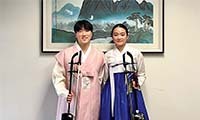
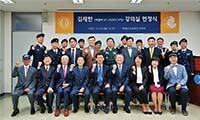




















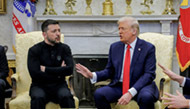





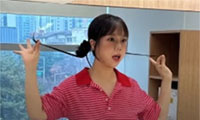
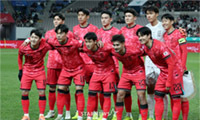
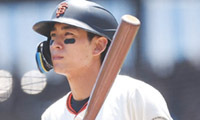














.png)


댓글 안에 당신의 성숙함도 담아 주세요.
'오늘의 한마디'는 기사에 대하여 자신의 생각을 말하고 남의 생각을 들으며 서로 다양한 의견을 나누는 공간입니다. 그러나 간혹 불건전한 내용을 올리시는 분들이 계셔서 건전한 인터넷문화 정착을 위해 아래와 같은 운영원칙을 적용합니다.
자체 모니터링을 통해 아래에 해당하는 내용이 포함된 댓글이 발견되면 예고없이 삭제 조치를 하겠습니다.
불건전한 댓글을 올리거나, 이름에 비속어 및 상대방의 불쾌감을 주는 단어를 사용, 유명인 또는 특정 일반인을 사칭하는 경우 이용에 대한 차단 제재를 받을 수 있습니다. 차단될 경우, 일주일간 댓글을 달수 없게 됩니다.
명예훼손, 개인정보 유출, 욕설 등 법률에 위반되는 댓글은 관계 법령에 의거 민형사상 처벌을 받을 수 있으니 이용에 주의를 부탁드립니다.
Close
x